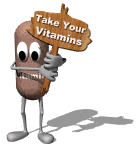The Dangers of Dietary Supplements

Dietary supplements refer to any health product that can supplement our diet. They include vitamins, minerals, amino acids, digestive enzymes, probiotics, herbal supplements, glandular extracts and dietary fibers.
Surveys show that more than half of the U.S. adult population uses dietary supplements. In one recent year, consumers spent more than $6.5 billion on dietary supplements. Dietary supplements are available in a variety of over-the-counter preparations.
Dietary supplements and prescription drugs have a lot in common. Both can help you feel better and avoid common ailments, and they're readily available at your local pharmacy. But natural remedies are missing something their prescription counterparts have: a patient package insert. Read this for vital information on how to take a supplement safely, identify its negative side effects and avoid potentially dangerous interactions with other medications.
Because dietary supplements are not regulated in the same way prescription medications are, the only watchdog over your intake is you. So heed the following three rules to make sure you do the job right:
- Don't ignore symptoms: "Even too much vitamin C can cause diarrhea," says Dr. Ruch 'Kava, director of nutrition for the American Council on Science and Health. "If you reduce the dosage and the problem goes away, you're in the clear." Doesn't help? Stop using it.
- Avoid an overdose: Large amounts of water-soluble vitamins, such as vitamin B12, are seldom harmful, because your body can easily excrete any excess. But high doses of fat-soluble vitamins — specifically vitamins A, D and E — are stored in organs and tissues and can cause dry skin, nausea, joint pain and depression.
In one case a woman was reported to give her two teenage daughters mega dose of vitamin A for prolonged period, thinking that the supplement is good for the eyes. Both suffered from acute liver failure and one required a liver transplant to save her life. Vitamin A is not dangerous but mega dose of vitamin A is hepatotoxic.
And be cautious about taking more than one kind of vitamin or herbal supplement. Rather stick to a few supplements in which none of the ingredients are repeated.
- Mix well: "If you're being treated for any kind of illness, especially heart disease, you're crazy not to talk to your doctor before starting a supplement," says Kava. For instance, ginkgo biloba and ginseng both thin your blood. As a result, they can exacerbate the effects of some heart medications and cause dangerously low blood pressure.
- Be on the lookout for fraudulent products: Often the type of claims made in labeling and advertising literature can identify fraudulent products. Terms such as "breakthrough," "magical," "miracle cure" and "new discovery" are commonly used. If the product were a cure for a serious disease, it would most likely be widely reported in the media and used by healthcare professionals.
|